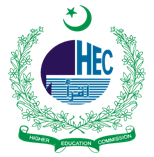Effectiveness of Digital Technology in Educational Institutions: Review for a Sustainable Model
Keywords:
Effectiveness, Digital Technology, Sustainable Model, Blended Model, Education SystemAbstract
Digital technology has become a powerful tool in many areas like medicine, business, finance, communication, engineering, entertainment, and education. Today, schools and universities use digital tools extensively for teaching, testing, giving feedback, administration, supervision, and research. However, experts are increasingly worried about relying too much on digital technology in education. They question whether it will completely replace traditional teaching methods, be abandoned due to issues like lack of technical skills, energy shortages, financial limitations, cybersecurity threats, or damage to infrastructure from wars or natural disasters, or if combining digital and traditional methods is the best solution. Studies show mixed opinions: some support digital technology, others prefer traditional methods, and some suggest a blend of both. This study examines the heavy use of digital technology in schools, explores potential risks of depending solely on it, and proposes a sustainable model that combines digital and traditional tools for balanced, lifelong learning. The research is descriptive, using surveys of teaching faculty from selected educational institutions. Focus group discussions were also held with digital technology experts, educators, and leaders of prominent educational institutions. The collected data were analyzed statistically. The findings indicate that while digital technology offers many benefits, relying entirely on it carries risks to its sustainability. Therefore, it is recommended to develop a model that integrates both modern digital technology and traditional educational resources. A blended approach is suggested as the most suitable / sustainable for both developed and developing countries, especially for underprivileged communities. Future research should explore additional areas related to this issue.
Downloads
Published
Issue
Section
License
Copyright (c) 2025 Dr. Rahmat Ullah Khan, Dr. Nauman Sadiq, Dr. Shumaila Karamat, Dr. Shahji Ahmad, Dr. Muhammad Kamran

This work is licensed under a Creative Commons Attribution-NonCommercial 4.0 International License.








